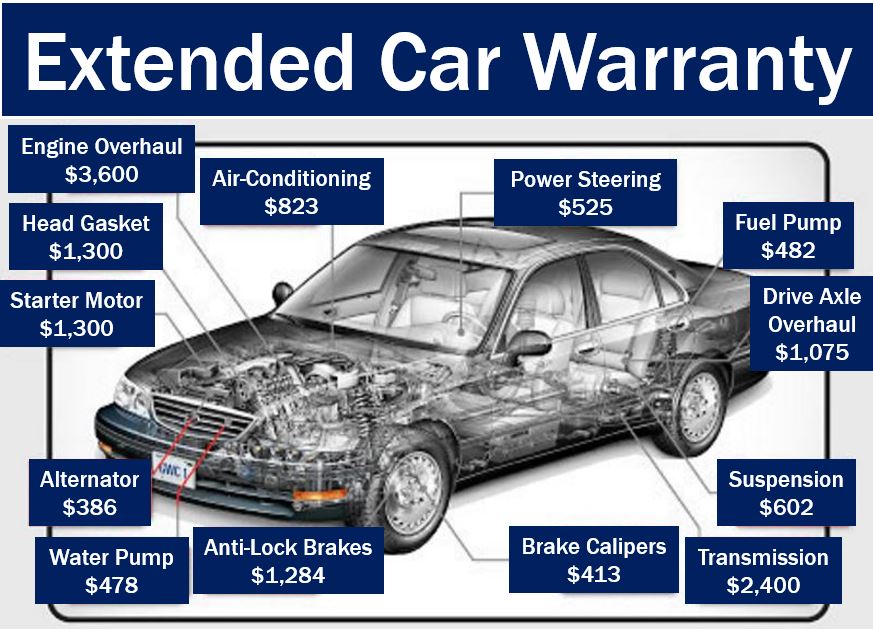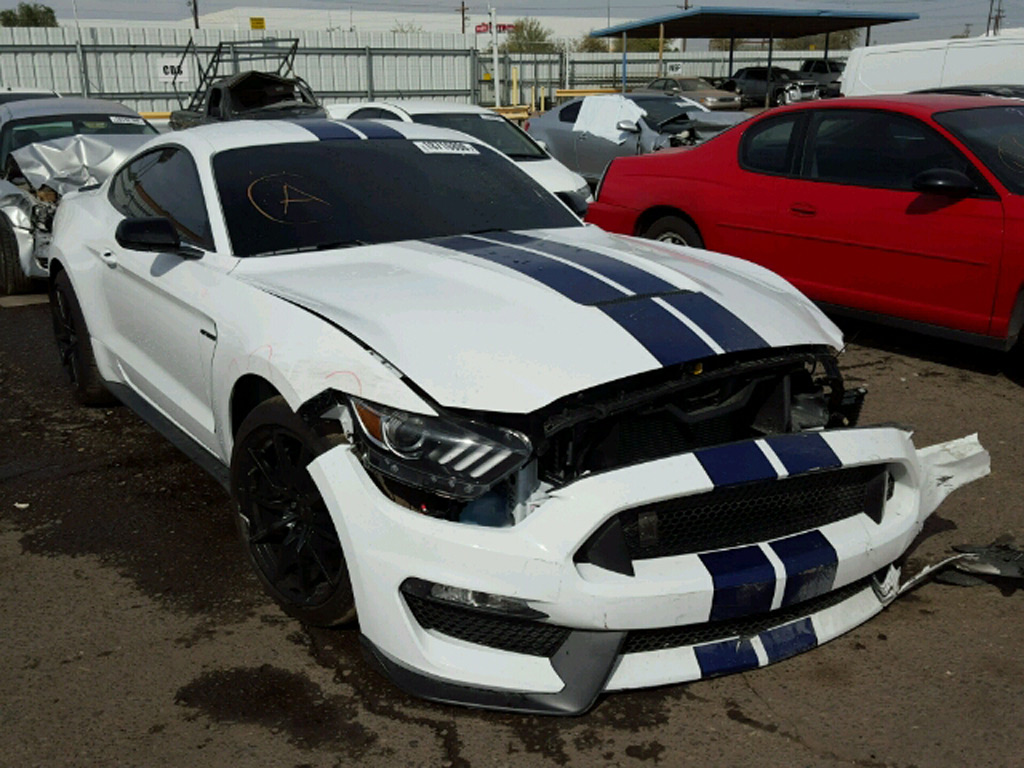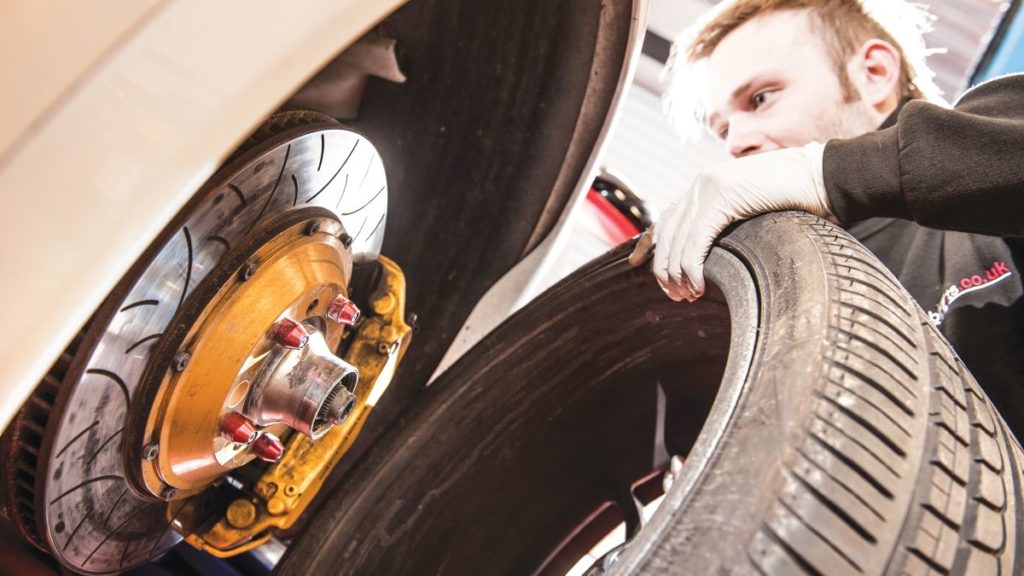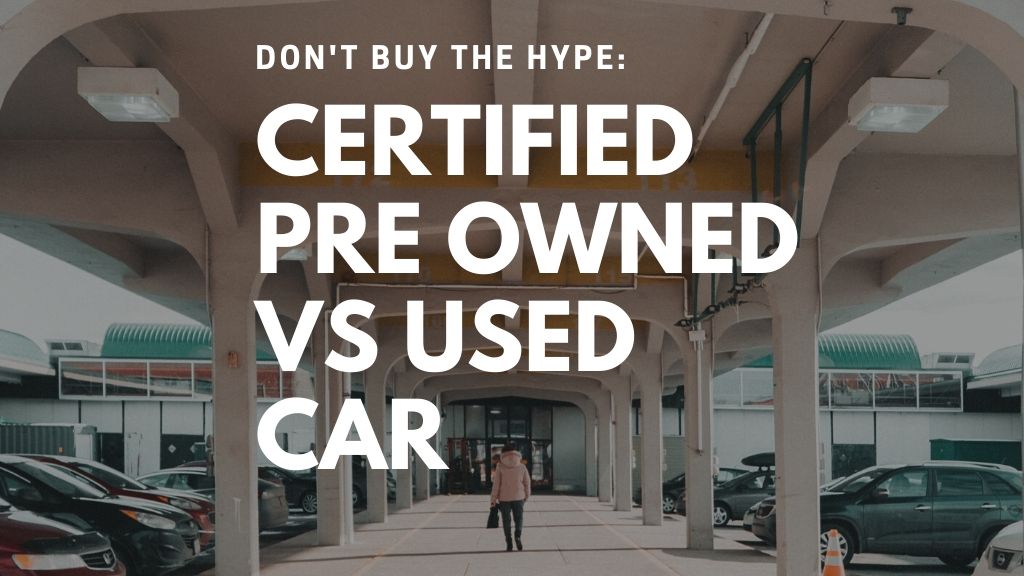Last Updated on May 29, 2020 by Jason Mason
Top reasons to never buy a certified pre-owned car
Looking at buying a used car? Chances are if you’ve been to a dealership, they’ve tried showing you some of their “certified pre-owned cars.” It sounds like a good deal off the bat, a car that’s cheaper than a new one, but comes with a warranty!
Plus, they claim that it’s passed a “rigorous multi-point inspection process.” So, you get the price of a used car and the peace of mind of a new one. That’s the sales pitch, at least.
But take it from a mechanic that’s completed hundreds of vehicle inspections; the only thing you get by buying a certified pre-owned vehicle is a certified way to get ripped off.
- What is a certified pre-owned car anyways?
- Buying a certified pre-owned car is the same as purchasing an extended warranty.
- The warranties just aren’t worth it.
- Do your homework – certified pre-owned cars can still be lemons.
- There’s no guarantee that the vehicle passed any inspection.
- There’s no guarantee the maintenance was done on time.
- Not all “certified pre-owned” programs are approved by the manufacturer.
- When is the right time to choose Certified Pre Owned?
What is a certified pre-owned car anyways?
A certified pre-owned car is a car that’s passed a “rigorous multi-point inspection.” But, without knowing what that “rigorous” inspection is, it’s hard to tell if it’s worth the extra money.
The truth is that these “rigorous” inspections only cover what the mechanic can see, and the things that typically end up getting repaired to make a car certified pre-owned are cosmetic. The few exceptions to this are steering components and leaking components, which the mechanic can see with a quick visual inspection.
Of course, you don’t want a car with busted steering or leaking components! But with just a little homework, you can ensure that you’ll be able to inspect these components and save yourself THOUSANDS of dollars. Or, if you don’t think you can handle checking the parts yourself, you can take the vehicle to an independent mechanic and save a ton of cash.
As for everything else, these are things that everyone can see by just walking around the vehicle. Take a look at the upholstery and check if it’s starting to fall apart. Walk around and see if there are any dents or scrapes.
Are these things you want to pay someone else to check for you? Because when you buy a certified pre-owned vehicle, that’s what you’re doing.
Buying a certified pre-owned car is the same as purchasing an extended warranty.

The multi-point inspection is a joke because it only covers obvious defects, which most times are cosmetic, and the buyer would easily identify anyways. But what other perks are offered by purchasing a certified pre-owned vehicle?
The truth is that buying a certified pre-owned vehicle is equivalent to purchasing an extended warranty for your car. But not just any extended warranty, an expensive one. And the truth about these warranties is that most times they simply aren’t used.
That’s because when you properly maintain your vehicle, the chances of it breaking down within the warranty window are minimal. And if you don’t maintain it correctly, you void the warranty anyway. That means you end up spending a ton more on a warranty that you’ll probably never use.
The warranties just aren’t worth it.
It’s true that certified pre-owned vehicles typically come with some sort of warranty. But when you break it down, these warranties usually fall flat compared to the extra money you end up dropping on them.
To know what you’re getting, you need to know a few things. First, you need to understand the difference between a comprehensive warranty and a powertrain warranty. When it comes down to it, a comprehensive warranty is what you want.
Unfortunately, these warranties are typically far shorter than the dealership offers for their powertrain warranty. Comprehensive warranties cover just about everything that could go wrong with your vehicle. From engines to steering components, if it breaks, then you can get it replaced with a comprehensive warranty.
But does that mean a comprehensive warranty covers everything? Absolutely not! If your upholstery starts to fall apart or if your headlight goes out, you’re still going to be coming out of pocket. That’s because these items are considered consumables, and everything that is worn out by regular wear and tear isn’t covered.
And a powertrain warranty covers even less. A powertrain warranty only covers your engine and transmission. And while it’s true that these items are the most expensive part of your vehicle, they are also the most durable part of your car.
In newer vehicles, engines and transmissions are built to last well over 150,000 miles. That means the chances of you needing that powertrain warranty are minuscule. Even still, just because your check engine light came on doesn’t mean that the warranty will cover it. That’s because your check engine light will come on for a wide variety of reasons, a lot of which are classified as routine maintenance, which warranties don’t cover.
And none of this even mentions the fact that voiding your warranty is easier than you think. If you take your vehicle to a “non-approved” mechanic for oil changes or other routine maintenance, the dealership will often void your warranty. That means to keep the warranty that you paid for; you’re stuck taking it to a service shop that is going to charge you a lot more and is likely to try and rip you off.
It’s not hard to figure out why dealerships are so keen on pushing them with so many things not covered and so many hidden costs associated with warranties.
Do your homework – certified pre-owned cars can still be lemons.

Just because the car comes with a warranty doesn’t mean you won’t be stuck owning a lemon. Just because the comprehensive warranty lasts a year or two doesn’t mean that you won’t be stuck dealing with the headaches every time it breaks down.
Just because the car passed an inspection doesn’t mean that it’s guaranteed to not break down on you. Those inspections don’t cover the essential parts of the vehicle, the inner working of the engine, and transmission.
It’s the most expensive part of the car, and all the inspection covers is an external look. The reason for that is simple, the only way to figure out anything else is to tear it all apart, and nobody wants that.
So, what peace of mind are you getting when you buy a certified pre-owned car? You still need to do your research on the make and model, and you should always do a thorough inspection of the vehicle itself before purchasing it. That means you’ll end up spending a ton more money and still have to inspect everything to make sure you’re not buying a car with a ton of issues.
There’s no guarantee that the vehicle passed any inspection.
If there’s one thing that everyone knows about dealerships selling used cars, it’s this: used car dealers are shady. Sure, not all of them are trying to rip you off, but some are.
And the truth is that it’s not that hard for a used car dealership to find a mechanic that will certify their lemon of a car as a “certified pre-owned” vehicle. That means that you can’t just expect that a certified pre-owned vehicle has passed an inspection.
Plenty of used car dealerships will try and hide damage or mechanical issues from you. Trusting that a car is “certified pre-owned” is an easy way for the dealership to get the potential buyer’s guard down. If you think that a mechanic already checked the vehicle, you are more likely to inspect the car less thoroughly and less likely to take it to an independent mechanic.
That is why you should always have an independent mechanic check out ANY vehicle before you purchase it. And if you’re going to have a mechanic check out the car before you buy it anyway, what’s the point of a certified pre-owned vehicle?
Furthermore, you always want to run a full VIN check on the vehicle before you purchase it. This check will help you to identify if the car has been in accidents in the past or has had any other maintenance issues that the dealer is trying to hide from you.
There’s no guarantee the maintenance was done on time.

You might think that to qualify as a certified pre-owned vehicle, the prior owner would need to verify that all the maintenance was completed on time. You would be wrong.
Just because the vehicle is “certified pre-owned” doesn’t mean that even the most essential preventive maintenance was completed on time. And that’s a huge problem. There’s a reason that you need to change your oil on time and everything else with automotive maintenance.
It’s what protects your engine from damage and premature wear. And the scary part is, without a complete maintenance history, there’s no way to know if the car was maintained correctly until it’s too late.
That’s because the issues that crop up with a car that wasn’t properly maintained aren’t visible on the outside. The first you’re going to find out about it is when you take it into the shop because something is wrong.
Not all “certified pre-owned” programs are approved by the manufacturer.
Every vehicle manufacturer has its own certified pre-owned vehicle program. To really know what you’re getting, you need to look into that vehicles specific certified pre-owned program. Some are more stringent than others, meaning you can’t just trust that every certified pre-owned vehicle has gone through the same checks.
That means if you bought a certified pre-owned Ford that you were happy with before, if you’re going with a Chevy this time around, you have to do your homework all over again.
Even worse, dealerships will often try to pass a vehicle off as “certified” even if it hasn’t passed the manufacturer’s standards. What’s the difference? One difference is that the dealership can set whatever policies they want to “certify” a vehicle. No amount of preexisting damage or conditions will disqualify it.
Furthermore, there’s another difference between vehicles that have been certified by the dealership and ones that have manufacturer certifications. That difference is where the warranty is coming from.
If the vehicle is only certified by the dealership, you often get stuck with a warranty that isn’t honored by the manufacturer. With warranties that aren’t accepted by the manufacturer, you’re usually stuck taking the car back to the EXACT dealership you bought it from for any covered work.
Even worse, most of the time, the fine print on these warranties mandate that the preventive maintenance needs to be done at that exact dealership for the warranty to be honored. It’s a big boost for that dealership because it will have you supplying their mechanics with work for years.
The easiest way to determine if the vehicle is certified pre-owned from the manufacturer or just the dealership is by looking for the manufacturer-approved stick in the windshield. And each manufacturer has their own sticker, so you’ll need to do your homework to make sure you’re not getting ripped off with a bogus “certified” vehicle.
When is the right time to choose Certified Pre Owned?
No – there’s never a good time to choose CPO over a regular used car. When it comes to getting the most for your money, certified pre-owned cars just aren’t worth the added costs. You end up spending more money on a vehicle that’s the exact same as any other used car. There’s no guarantee that the inspections were completed or that the proper maintenance was ever done. A certified pre-owned car is nothing more than an expensive extended warranty in disguise.
The warranties don’t cover near enough and require ultra-specific maintenance at overpriced dealerships to even be honored. With a little research, you can find out everything you need to know to purchase a high-quality used vehicle without overpaying for a certified pre-owned car. Of course, before buying any vehicle, make sure to get a full history of the vehicle by clicking HERE to get a FREE VIN report.




